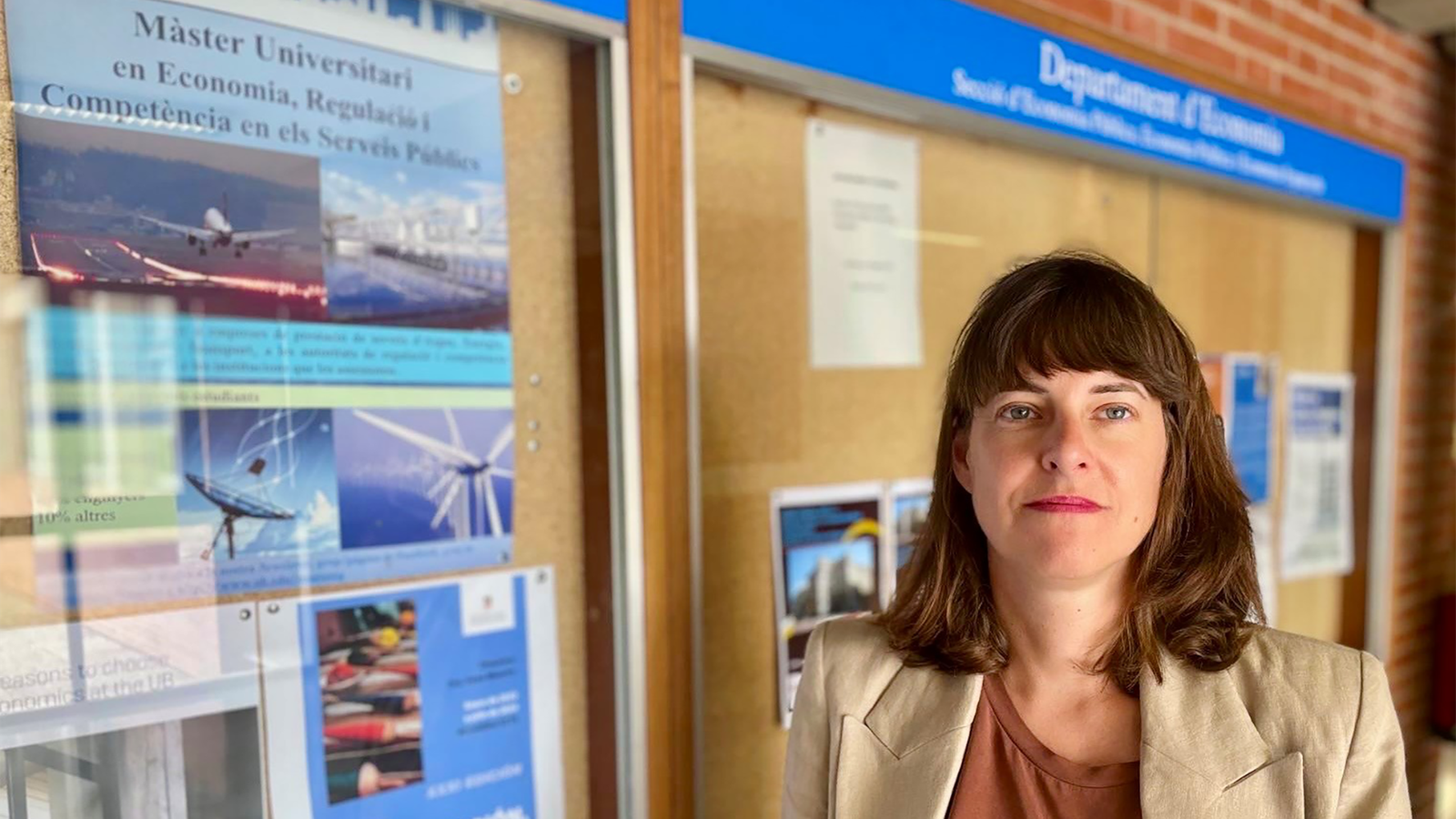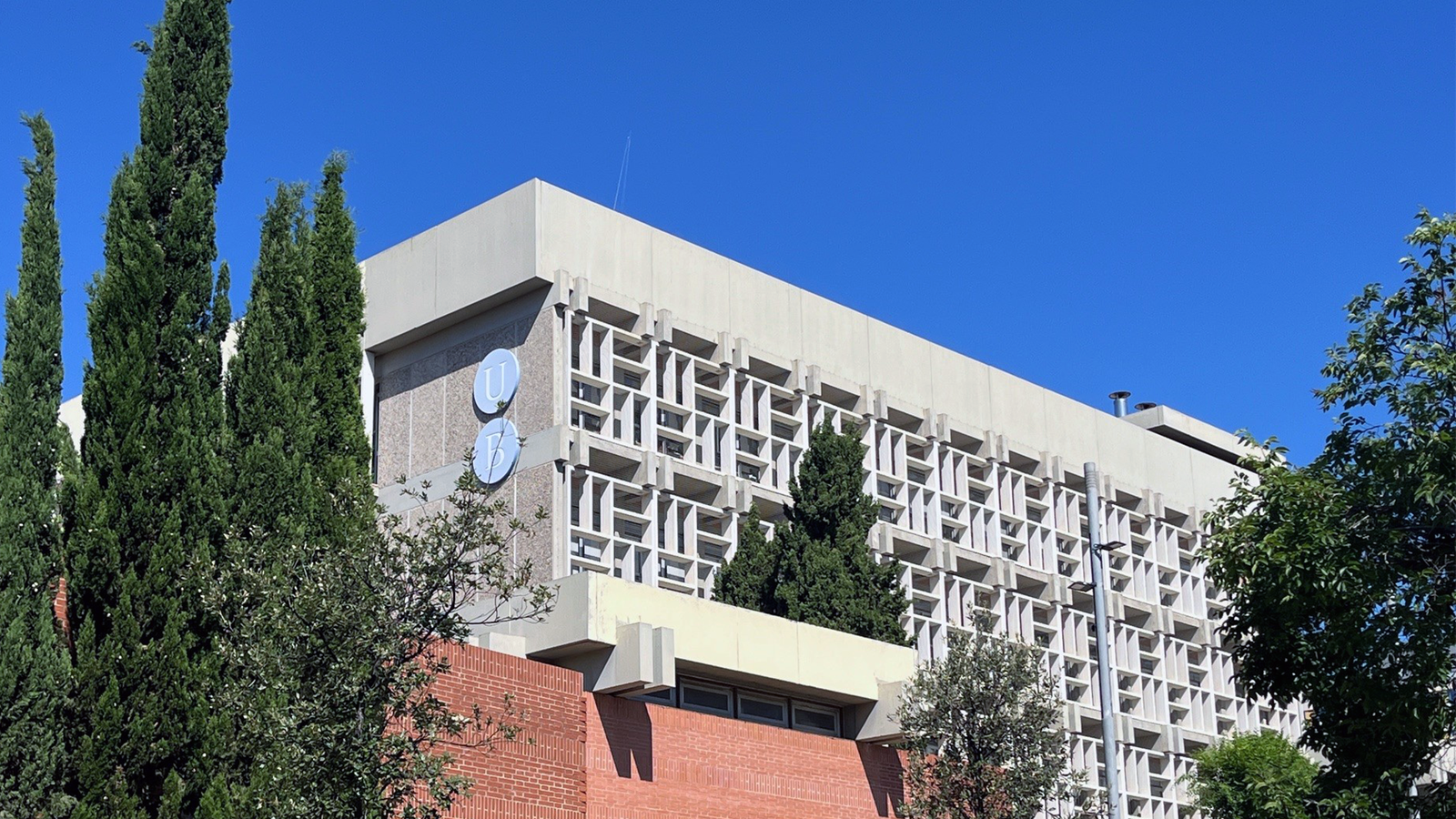DLR Researcher on International Terrain


- New horizons in air transport research: International research experience in scientific guest stay
- Examination of environmental policy instruments in air transport
Interview with Dr. Katrin Oesingmann about her research stay in Barcelona
Today we speak with Dr. Katrin Oesingmann, who worked as a visiting scientist at the University of Barcelona (Universitat de Barcelona, School of Economics) in early summer 2024. At the German Aerospace Center (DLR), she conducts research at the Institute of Air Transport in the department of Air Transport Economics. The department investigates economic research questions along the entire air transport value chain and its interfaces with other modes of transport. Dr. Oesingmann tells us about her experiences and provides insights into her research.
DLR (Institute of Air Transport): Dr. Oesingmann, could you tell us a bit about your research stay in Barcelona?
Oesingmann: Certainly! This year, I spent three months as a visiting scholar at the School of Economics at the University of Barcelona. Such a research stay is part of DLR's internationalisation strategy and was therefore supported, including as a joint stay with my family. There, I worked closely with my host, Professor Dr. Xavier Fageda. Our research focuses in the field of empirical, economic analyses in air transport fit together perfectly.
DLR: What were the main reasons for choosing this exchange?
Oesingmann: My main motivation was to enhance my research skills through exchange with recognised experts and expand my scientific network. Additionally, I aimed to deepen my language abilities - I mainly spoke English and Spanish with the colleagues at the university.
DLR: What project did you work on in Barcelona?
Oesingmann: My current project examines the influence of environmental policy instruments in air transport, specifically the effects of the EU ETS on aviation. To do this, I analysed empirical data together with my host to understand how the system affects ticket prices, passenger numbers, and shifts in competition. We are now preparing to submit the resulting scientific paper for publication.
DLR: How did your research in Barcelona differ from your work in Germany?
Oesingmann: Essentially, research work is the same regardless of location, as it operates internationally more or less uniformly, so location matters less. The main difference in this case was the lively atmosphere of the university environment with many students. The University of Barcelona offers an international and diverse environment, which enriched collaboration greatly. As a humorous aside, I can mention the daily rhythm: for example, lunch was noticeably later there than in Cologne, so my stomach occasionally protested around noon. Overall, the exchange with colleagues was very valuable, and I quickly felt integrated.
DLR: What challenges and opportunities did working abroad present for you?
Oesingmann: The biggest challenge was the organisational side, such as finding accommodation and childcare. The opportunities lie in long-term collaboration and expanding my network. We are already planning another joint project.
DLR: What insights or highlights would you like to emphasise from your time in Barcelona?
Oesingmann: I particularly enjoyed participating in an internal seminar series covering many exciting topics, and meeting scientific colleagues. The collegial exchange - also with other visiting researchers - and shared activities helped me settle in quickly. At this point, I would like to sincerely thank Professor Fageda for his hospitality and continuous support.
DLR: What advice would you give to other researchers considering a scientific guest stay abroad?
Oesingmann: I can only recommend it. It advances you both personally and professionally. It is important to find suitable hosts early and organise everything well. One should have the courage to approach professors or researchers, even if one has not met them personally yet. It is helpful to already suggest specific topics for collaboration in the first contact.
DLR: Thank you very much, Dr. Oesingmann, for these insights.
